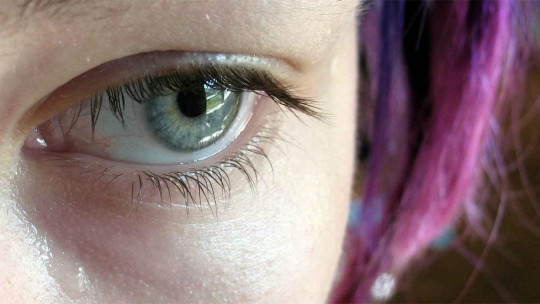
In situations of danger or stress, we need to trust that our body will respond to the challenge. Imagine, for example, the situation of fleeing from a beast: if a tiger chases you, you better have all the collaboration of your body to have your senses, muscles and reflexes more active and effective than ever.
We can say the same when suddenly avoiding a car or avoiding any unexpected danger of modern life. Fortunately, our body has tools to ‘activate the alarm’, and in fact, another virtue is our mind’s ability to anticipate events, especially if they involve danger. It is a skill that allows us to plan, organize and, ultimately, be prepared for what (maybe) comes. This is true for both immediate physiological reactions and long-term planning.
These two capabilities are essential for survival, even in our apparently calm and orderly society. However, there is a type of psychological alteration in which these tools become a problem: the so-called anticipatory or anticipatory anxiety.
What is anticipatory anxiety?
Have you ever felt a great panic before speaking in public? So, what you have experienced is an example of anticipatory anxiety, with a picture of great nervousness and panic. We talk about the feeling you feel minutes before having to speak in public, when you even think that the worst can happen. This type of anxiety is shown when suffering pathological panic attacks at the prospect of future events.
These events, which have not occurred and from which there are no reasonable grounds to deduce that they will, are catastrophic and very negative in nature.
How does this stress alteration appear?
Life is uncertain, but there are certain statistical ranges that minimize the chances of the most terrible events occurring. Fearing leaving the house because you might be struck by lightning is something that ignores any probability of that actually happening. Normally, life doesn’t happen in leaps and bounds where you go from bad to much worse.
Anticipatory anxiety disorder is related to the difficulty of assuming that idea. Those affected suffer from a certain intolerance of uncertainty and the need to have everything around them under control. For this reason, it frequently occurs in people with a high degree of demand for their own performance.
Extreme unfounded fear can occur without prior motivation, but it is very common for these people to show anticipatory anxiety attacks as a result of previous trauma. If you have suffered a specific anxiety attack, you may fear any situation in which you believe you will be exposed to conditions like those on that occasion.
You too It can happen if you have a phobia. For example, if you have a phobia of snakes, you might feel anticipatory anxiety at the idea of visiting a zoo. You imagine that you will see snakes, you experience anxiety and your body reacts with the symptoms of terror. Your catastrophic perspective will not change although there is no guarantee of seeing a snake.
Symptoms of anticipation anxiety
Extreme stress has consequences on the body. Pushing the body to the limit, with the corresponding hormonal torrent, is necessary in situations of real danger. However, continued exposure to these physiological conditions ends up being harmful to our body and our psyche.
With the anticipation, fear appears in the face of a non-existent threat which is seen with the worst expectations. Catastrophic thoughts appear (“I won’t be able to do it right”, “there is no solution”, “I will make a fool of myself”, “everything will go wrong”, “the worst will happen”, etc.) that initiate a torrent of panic signals. Your body reacts with physical symptoms such as the following:
These and other physical symptoms They can occur with sufficient intensity to be disabling, and can even be confused with the symptoms of a heart attack. Later, once the anxiety attack is over, you may develop a fear of fear. That is, you may feel anticipatory anxiety at the prospect of a repeat anxiety attack. It’s a snowball.
Treatment
Anticipatory anxiety can be really traumatic and requires professional treatment.
From psychology, cognitive-behavioral therapy and relaxation techniques guided by psychologists have proven effective in bring patients from that terrible future to a controlled present. Having an online psychologist provides facilities that bring therapy closer to home: you can enjoy online therapy with peace of mind in a comfortable and safe environment.
The goal is for this safe environment to grow, so that you can increase your self-confidence until you can face the situations that cause you anticipatory anxiety. It is a trip through time, but with the mind: let’s return from that future to stay in the present.








